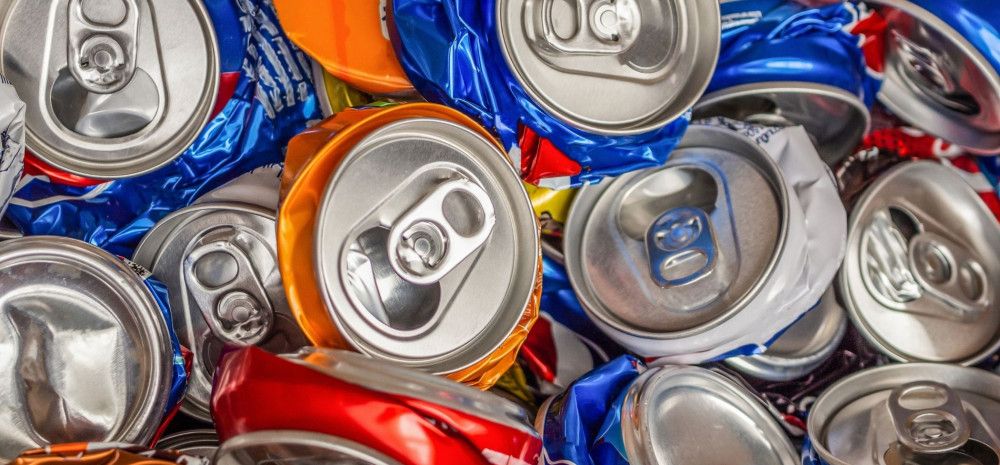
It takes just 60 days to recycle a can.
From the time you put an empty aluminium can (think soft drink cans) into your recycling bin, it takes just 60 days to make a brand-new can and have it back on the supermarket shelf.
Australians use over three billion aluminium cans annually and approximately 350,000 aluminium cans are made every minute all over the world.
We use a lot of aluminium cans. But have you ever thought of how they are made.
Aluminium cans are made from bauxite, a clay-like mineral that is mined here in Australia from open-cut mines in Queensland and Western Australia. It is then transported to local refineries where it is converted into alumina, a fine white powder. The alumina is then smelted into pure aluminium and cast into large ingots or rolled into long sheets.
It takes about four tonnes of bauxite to make one tonne of aluminium. There is a limited amount of bauxite in the world, so once this is mined it’s gone for good.
Recycling your empty aluminium cans means that no new bauxite is needed to make new aluminium cans. Instead, 100% of the old aluminium can is used to make new cans.
Aluminium is infinitely recyclable, meaning it can be recycled again and again without any decrease in quality. And by using recycled aluminium to make new cans and other products saves 95 per cent of the energy it would take to make new metal from bauxite. Recycling just one aluminium can, saves enough energy to power a TV set for three hours.
Recycled aluminium is not only used to make new cans for soft drinks and food items, but also to make other products such as car parts, window frames, baseball bats and bicycles. It is lightweight and therefore cheaper to transport. You can even buy water in aluminium cans as a better alternative to plastic bottles.
By recycling your empty aluminium cans, you are helping to:
- save Earth’s limited amount of bauxite (a natural resource)
- keep these valuable materials out of landfill, and
- reduce energy use and greenhouse gas emissions.
For more information about what happens to your recycling visit the What happens to my garbage, recycling and garden waste? webpage.
